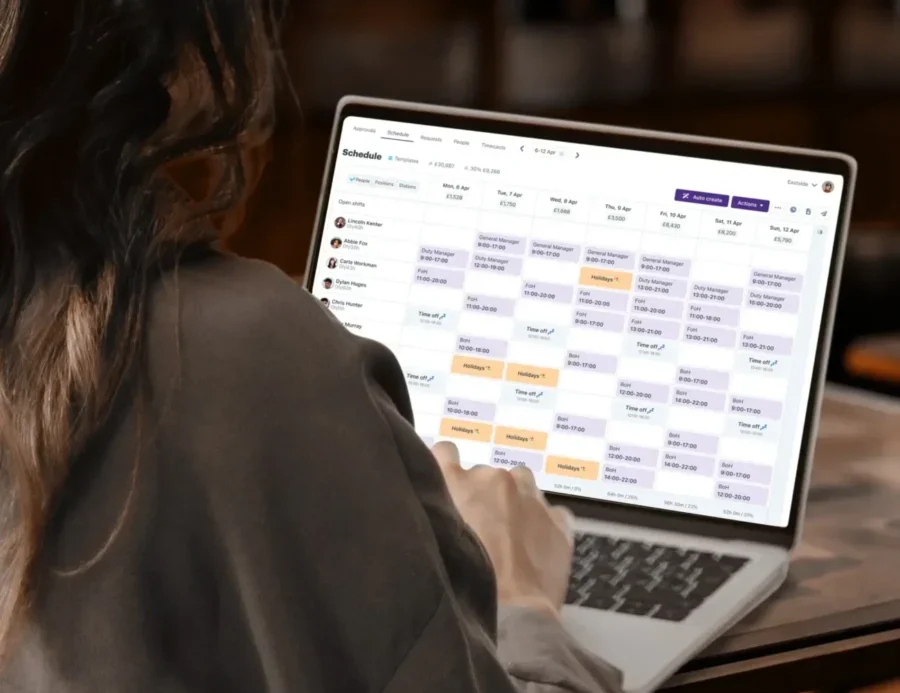The hospitality sector has faced significant labour shortages, influenced by an ageing workforce, modest wages, and the physically demanding nature of the roles.
The COVID-19 pandemic amplified these challenges, leaving restaurants and hotels in a difficult position as they struggled to find staff.
While the pandemic is now in the past, its intensified labour challenges remain a pressing issue for the industry.
But fear not!
Innovative technology is stepping up as a potential game-changer to tackle these labour woes in the hospitality industry.
The Role of Technology in Addressing Labour Shortages
Technology can be a game-changer in overcoming labour shortages in the hospitality sector. By adopting innovative solutions, businesses can streamline their operations and reduce their dependency on human labour.
Here are some key technological advancements that are shaping the future of the hospitality industry:
Artificial Intelligence and Machine Learning in Restaurant Operations
AI-driven restaurant operations software can significantly benefit restaurants grappling with labour shortages. By optimising workforce management through intelligent staff scheduling and performance evaluation, these systems ensure that available staff are utilised effectively, reducing the pressure caused by staff shortages.
AI-driven restaurant operations software can ease the burden of repetitive tasks on a limited workforce. By automating routine processes, such as inventory tracking, order management, and data analysis, AI allows employees to focus on more complex and customer-centric tasks that require a human touch.
Mobile Apps and Customer Self-Service
Mobile apps and self-service technologies have become valuable assets in addressing labour shortages in the hospitality industry. By offering guests the ability to make reservations, check-in, order food, and request services through their smartphones or on-site kiosks, businesses can significantly reduce the workload on their staff.
This not only frees up employees to focus on more critical tasks but also provides a convenient and streamlined experience for guests, resulting in increased customer satisfaction and loyalty. Implementing mobile apps and self-service solutions can help hospitality businesses tackle labour shortages while maintaining high levels of service and guest satisfaction.
Internet of Things (IoT)
IoT devices, such as smart thermostats, lighting systems, and security cameras, can help hoteliers and restaurant owners manage their properties more efficiently. Businesses can save on labour costs and enhance guest satisfaction by automating tasks like temperature control and energy consumption.
Benefits of Implementing Technology in Hospitality
Embracing technology in the hospitality industry brings a host of advantages that contribute to improved operations, better customer experiences, and increased profitability.
Let’s delve deeper into these benefits:
Increased Efficiency
Integrating technology in various processes leads to a significant boost in efficiency. Automation of repetitive tasks, such as bookings, check-ins, and inventory management, reduces the scope for human error and streamlines operations.
With advanced technology taking care of these routine tasks, employees can channel their energy and skills towards more critical aspects of their roles, like offering personalised guest services and resolving issues promptly. Ultimately, this enhanced efficiency translates to a more effective and cohesive workforce.
Enhanced Customer Experience
Technology empowers businesses to offer exceptional and tailored experiences to their customers. By leveraging data analytics, AI, and personalisation tools, hospitality providers can gain insights into guest preferences, anticipate their needs, and curate experiences that exceed expectations.
For example, mobile apps for hotel bookings can offer customised room suggestions based on a guest’s previous stays, while AI-powered chatbots can quickly address customer queries and make tailored recommendations. These personalised interactions foster loyalty and encourage repeat visits, setting businesses apart in a highly competitive market.
Cost Reduction
Although the initial investment in technology might seem steep, the long-term cost savings can be substantial. By automating tasks and improving efficiency, businesses can reduce their reliance on human labour, leading to lower staffing costs.
Moreover, smart technology can optimise resource consumption, such as energy usage in heating, cooling, and lighting systems, resulting in significant utility savings. Additionally, data-driven decision-making can help businesses identify areas of improvement and optimise processes, further contributing to cost reductions and higher profitability.
By exploring these benefits in detail, it becomes clear that technology is a driving force in the hospitality industry’s evolution. With the right implementation strategy, businesses can capitalise on these advantages to navigate labour shortages, enhance their services, and secure a competitive edge.
Challenges and Considerations
While technology offers numerous benefits, it is crucial to consider some challenges and potential drawbacks before implementing it in the hospitality sector:
Leveraging AI-Based Operations Software for Employee Retention
AI-based operations software not only streamlines various aspects of hospitality management but also presents an opportunity to boost employee retention and satisfaction. By automating repetitive tasks, employees can focus on more engaging, customer-centric roles, leading to higher job satisfaction and reduced turnover.
However, businesses must address the following considerations when adopting AI-based operations software:
Staff Training and Adoption
Introducing new technology in the hospitality industry requires staff training and support. Businesses must invest time and resources to ensure their employees can effectively use the new tools and systems.
A well-planned onboarding process, continuous training, and open communication channels can help foster a smooth transition and encourage employees to embrace the new technology.
Balancing Human Touch with Automation
While technology can increase efficiency and optimise labour costs, it is essential to strike a balance between automation and maintaining the personal touch that is the hallmark of the hospitality industry.
Ensuring a human presence and genuine customer interactions remain a vital aspect of the guest experience. Implementing AI-based operations software should complement and enhance human-centric services rather than replace them.
Use Cases
The industry is successfully integrating AI-based solutions into their restaurants, demonstrating how technology can help retain talent and minimise the impact of labour shortages or high employee rotation.
Improved Work-Life Balance
Some restaurant chains are already implementing AI-powered workforce management software to create optimised schedules that consider employee preferences, such as preferred shifts and time-off requests.
This consideration for work-life balance leads to increased job satisfaction and a significant reduction in staff turnover, ensuring the restaurant maintains a consistent, experienced workforce despite industry-wide labour shortages.
Employee Skill Development
Some hostelry players are trying AI-based solutions to analyse staff performance data and identify skill gaps. By providing targeted training and professional development opportunities, some groups are not only improving their overall service quality but also increasing employee satisfaction and retention.
As a result, they are maintaining a strong, talented workforce even in the face of labour challenges.
Streamlined Communication and Collaboration
Fast-growing restaurant brands are using AI-driven communication tools to connect employees and managers across locations, enabling staff to share best practices, seek advice, and build a sense of community. This positive environment boosts employee retention and stabilizes the workforce amid labor shortages.
These use cases focus on how operations software can significantly benefit employee retention and help restaurants minimise the impact of labour shortages or high employee rotation.
By putting the spotlight on work-life balance, nurturing skills, and fostering open communication, businesses can cultivate a nurturing work atmosphere that draws in and holds on to the crème de la crème in the cutthroat world of hospitality.
Conclusion
The integration of technology in the hospitality industry can significantly address the labour shortage issue while improving efficiency, customer experience, and cost-effectiveness. However, it is crucial to strike a balance between automation and maintaining the human touch that sets the hospitality industry apart.
By learning from successful case studies and addressing the challenges, businesses can harness the power of technology to overcome labour shortages and thrive in the competitive market.
FAQs
How does technology alleviate labour shortages in the hospitality industry?
Technology can automate repetitive tasks, streamline operations, and reduce dependency on human labour, ultimately addressing labour shortages in the sector.
What types of technology are commonly utilised in the hospitality industry?
Examples of prevalent technologies include self-service solutions, artificial intelligence, machine learning, IoT devices, and mobile applications.
What advantages do businesses gain from implementing technology in the hospitality sector?
The key benefits are enhanced efficiency, improved customer experience, better workforce management, and cost optimisation.
What obstacles should businesses be aware of when adopting technology in the hospitality industry?
Challenges to consider include employee training and technology adoption, maintaining a balance between automation and the human touch, and the need for ongoing technological updates. The ease of use and the learning curve should be key factors to take into consideration when adopting new technologies.



